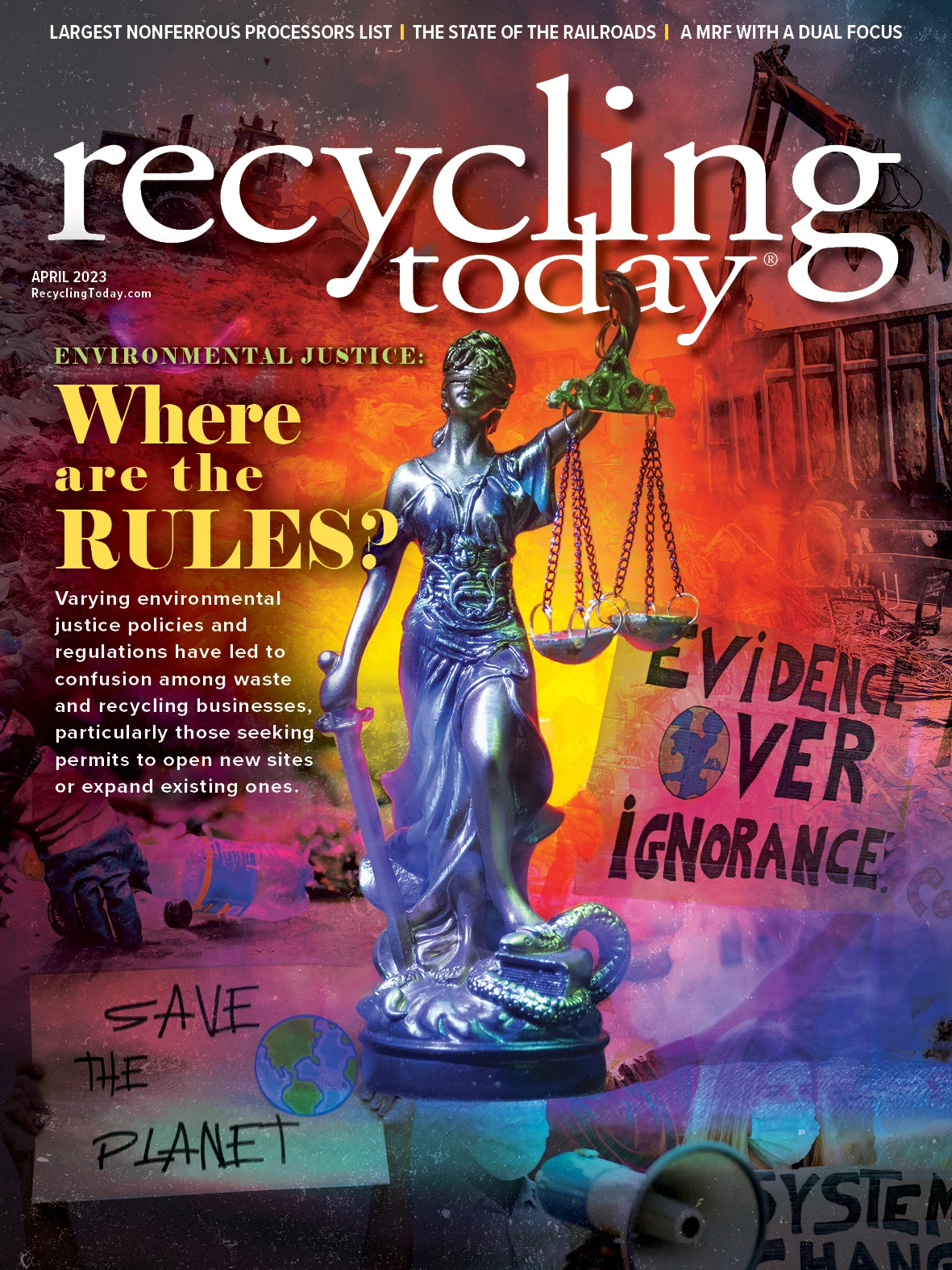
In 2021, President Joe Biden issued executive order 14008, “Tackling the Climate Crisis at Home and Abroad,” which includes goals for achieving environmental justice (EJ). It also introduced the Justice40 initiative, which aims to direct 40 percent of federal climate investments to disadvantaged communities. Much of this funding will help environmental activists and community groups rally around EJ initiatives and gather data to oppose what they consider to be questionable environmental permits.
Although the Environmental Protection Agency and the Biden administration are advocating for EJ, such policies or regulations are introduced and enforced at state and local levels. Yet, EJ-related guidance at those levels often is lacking.
Recycling Today has spent time in recent months researching which states have released EJ-related regulations and policies. Several lawyers referenced a map released by Bloomberg Law in 2021 that highlights the status of these regulations. The National Conference of State Legislatures also outlines state actions related to EJ as of April 2022.
Additionally, we reached out to various state departments of environmental protection or departments of environmental conservation to determine if lawmakers had passed or proposed EJ legislation. Some representatives said lawmakers had proposed regulations, and many reported the existence of EJ-related policies; however, some departments’ representatives were uncertain what their states’ EJ rules are—or if they have them.
In general, most states lack clear guidance on how to address EJ concerns.
Kurt Kissling, an environmental attorney at Warner Norcross+Judd in Michigan, says he suspects some state lawmakers might be hesitant to propose EJ-related regulations. “I think a lot of states look at this [and think] this could be crippling economically to come out with another set of requirements that make my state harder to do business [in], harder to get approvals,” he says. “There’s even been a reticence at the federal level to come out with rulemaking that could trickle down to states, so why would states rush to react?”
The lack of clear rules for EJ has slowed the permitting process for some waste and recycling companies that have had to navigate EJ-related concerns within their communities, but there’s a consensus that the rise in these concerns means companies need to do a better job increasing transparency. In a column for Waste Today, a sister publication to Recycling Today, Eugenia Manwelyan, project manager at Vienna, Virginia-based Gershman, Brickner & Bratton, says companies must be willing to engage with community members and listen to their concerns.
“You have to let people in,” Manwelyan writes. “If someone tells you, ‘Hey, this is hurting me,’ your reaction can’t be, ‘Sorry, but ... .’ ‘Sorry, but’ is not what anyone wants to hear when they are hurt. They want you to ask how and why it hurts and see the data to understand the harm that’s been done.”

Explore the April 2023 Issue
Check out more from this issue and find your next story to read.
Latest from Recycling Today
- Athens Services terminates contract with San Marino, California
- Partners develop specialty response vehicles for LIB fires
- Sonoco cites OCC shortage for price hike in Europe
- British Steel mill’s future up in the air
- Tomra applies GAINnext AI technology to upgrade wrought aluminum scrap
- Redwood Materials partners with Isuzu Commercial Truck
- The push for more supply
- ReMA PSI Chapter adds 7 members






